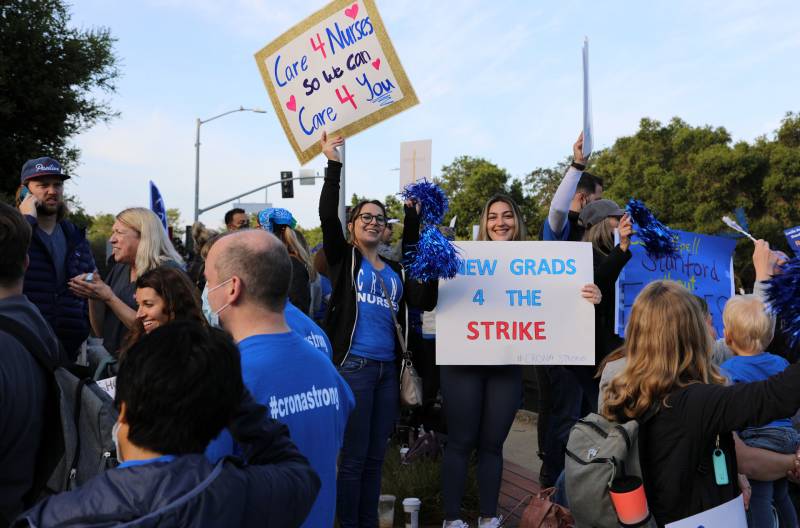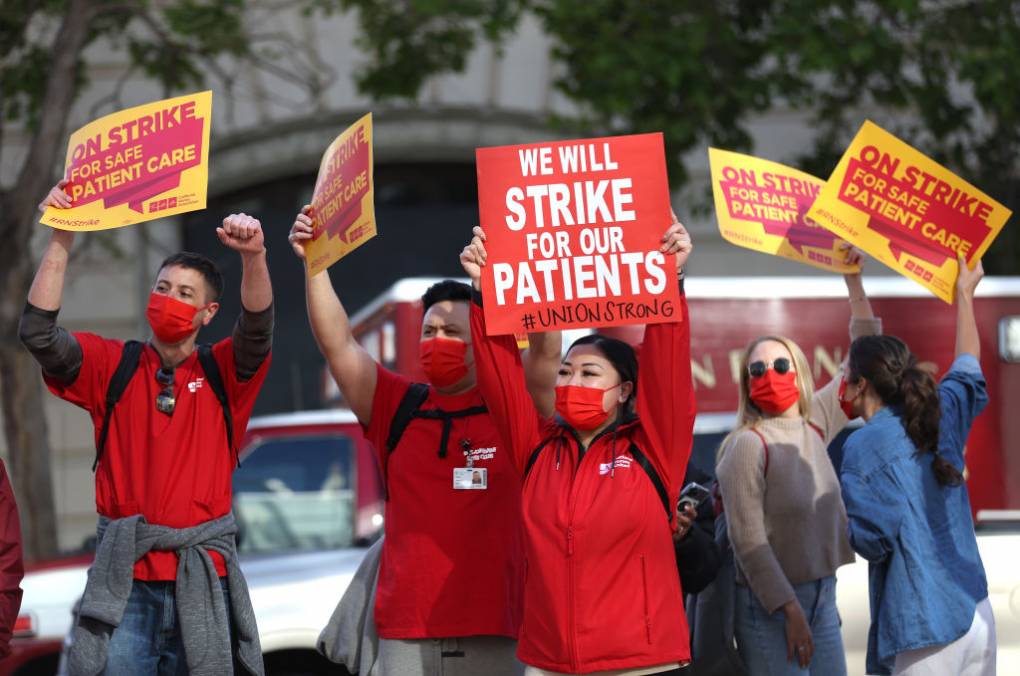“Nobody wants to strike,” ICU cardiac nurse Kimberley Reed told KQED. “Because it’s not good for hospitals. It’s not good for nurses. It’s not good for our patients.”
But Reed said she’ll be at the bargaining table to fight for better retirement benefits and to make sure that patients get the best care — and part of that, she said, is making sure nurses also get the mental health care they need.
“A lot of [workers] are paying for mental health services out of their pockets,” she said. “And I think with the death of Michael Odell … that actually did something to a lot of people.” Odell was a 27-year-old traveling nurse who was working at Stanford Health Care in January when he died by an apparent suicide.
“We had been bringing these [mental health] issues to light even before the tragic death of one of our colleagues,” Fred Taleghani, a nurse at Lucile Packard Children’s Hospital and a member of the union’s negotiation team, told KQED before the strike began.
The hospitals’ existing employee assistance program, Taleghani said, “was taking upwards [of] four to six weeks to even get an appointment with a therapist. And [for] anyone experiencing a mental health crisis, you need help immediately. A month from now, a month and a half from now — it doesn’t work.”
Taleghani said the union is asking for creative workarounds to get the hospitals to improve mental health care options for workers.
“We’re asking for $1,750 that [a] nurse can reimburse up to 80% of their outside mental health expenses with,” he said. “Mental health is a really personal issue, and you have to have a therapist that you connect with — and a randomly assigned therapist from a large company … is just not workable.”
Hospitals plan to cut striking workers’ benefits
Stanford Health and Packard Children’s announced earlier this month that they would cut striking workers’ health care benefits as of May 1. Stanford executives Beatty and Cepero said doing so is “standard national practice,” as health care benefits from an employer are generally only provided to those who are actively working.
“This standard practice is not unique to our hospitals and applies to any of our employees who are not working, are on unpaid status, and are not on an approved leave,” they said.
State legislators representing parts of the peninsula have called on Stanford to resolve the contract dispute.
In a joint letter Friday to Stanford Health Care President and CEO David Entwistle and Packard Children’s President and CEO Paul King, Assemblymembers Ash Kalra (D-San José) and Marc Berman (D-Palo Alto) and state Sen. Josh Becker (D-San Mateo) called it “unconscionable” that the two hospitals would cut health care benefits for striking workers and suggested it was a tactic to break the picket line.
The legislators and CRONA also have noted that Stanford Health Care and Packard Children’s have received hundreds of millions of dollars in federal pandemic relief funding — Stanford Health Care’s financial disclosure for the end of the 2021 fiscal year reported that revenue for the two hospitals grew 16% to a combined $8.3 billion.
“Cutting off the health care for these frontline health care workers and their families after they have carried us through a pandemic is not only unnecessary — it is cruel and out of step with the values Stanford and Packard publicly advertise,” Kalra, Berman and Becker said. “Having received generous federal funding the last two years, Stanford and Packard health care should not be playing games with nurses’ health care benefits.”
CRONA has yet to announce an end date for the strike and plans to continue bargaining with Stanford Health executives.

